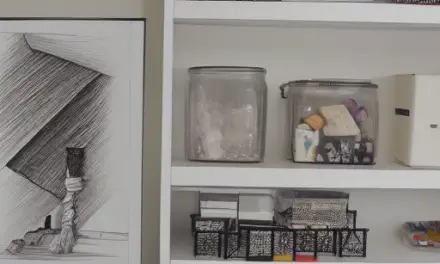Welcoming a new kitten into your home is an exciting experience, but it also comes with responsibilities, including ensuring their health and well-being. One of the most pressing concerns for new kitten owners is dealing with flea treatment for kittens under 8 weeks. In this essential guide, we will explore safe and effective solutions for managing kitten fleas, focusing on the best practices for flea treatment for kittens at this vulnerable age. We will delve into the risks associated with premature flea medications, outline the most suitable flea meds for kittens, and provide insights on how to get rid of fleas on a 5-week-old kitten. Additionally, we will discuss the recommended timeline for kitten flea treatment and highlight natural remedies that can be safely used. By the end of this article, you will be equipped with the knowledge to choose the best flea treatment for your kitten, ensuring they remain healthy and happy. Join us as we navigate the world of flea control for kittens 8 weeks old and beyond!
What flea treatment is safe for kittens under 8 weeks?
Understanding the Risks of Flea Treatment for Young Kittens
When it comes to flea treatment for kittens under 8 weeks, safety is paramount. Kittens at this tender age are particularly vulnerable to the side effects of many commercial flea medications. Their immune systems are still developing, and exposure to harsh chemicals can lead to serious health issues. It’s essential to understand that while fleas can cause discomfort and health problems, the treatments available must be carefully considered to avoid harming your kitten.
Many traditional flea meds for kittens contain potent chemicals that may not be suitable for very young animals. This is why consulting with a veterinarian is crucial before starting any flea treatment. They can provide guidance on the safest options available, ensuring your kitten remains healthy while effectively managing flea infestations.
Overview of Safe Flea Meds for Kittens
For kittens under 8 weeks, the best approach to kitten flea treatment often involves non-chemical methods. Here are some safe options:
- Flea Comb: The safest method for treating kittens under 8 weeks is to use a flea comb. This tool allows you to physically remove adult fleas from your kitten’s fur without exposing them to harmful chemicals. Comb your kitten once or twice daily, ensuring to dip the comb in soapy water after each pass to kill any fleas you collect.
- Bathing: If your kitten is comfortable with water, a gentle bath using warm water and a mild kitten-safe shampoo can help remove fleas. Ensure the shampoo is specifically formulated for kittens to avoid skin irritation. Always rinse thoroughly to prevent any residue.
- Environmental Control: It’s crucial to treat your home environment to prevent re-infestation. Wash all bedding, toys, and any fabric your kitten frequently contacts in hot water. Vacuum carpets and furniture regularly, and consider using flea traps to monitor and reduce flea populations.
- Consult a Veterinarian: Before applying any flea treatment, consult with a veterinarian. They can recommend safe options tailored to your kitten’s specific needs and health status. Some topical treatments may be safe for kittens over 8 weeks, but it’s essential to get professional advice.
- Avoid Chemical Treatments: Many over-the-counter flea treatments contain chemicals that can be harmful to very young kittens. Always prioritize non-toxic methods and consult your vet for safe alternatives.
For more information on holistic approaches to pet care, including flea management, consider resources from reputable organizations like the American Veterinary Medical Association (AVMA) or the ASPCA.

How to Get Rid of Fleas on a 5 Week Old Kitten?
To effectively eliminate fleas on a 5-week-old kitten, it is crucial to prioritize safety and gentle methods, as young kittens are particularly vulnerable. Here are some expert-recommended strategies:
- Warm Water Bath: Gently bathe the kitten in warm water. Use a small amount of mild dish soap, such as Dawn Original Dishwashing Liquid, which can effectively kill fleas on contact. Ensure the water is not too hot and keep the kitten calm throughout the process. Rinse thoroughly to remove any soap residue.
- Flea Comb: After bathing, use a fine-toothed flea comb to remove any remaining fleas and their eggs. Comb through the kitten’s fur, focusing on areas like the neck and base of the tail where fleas tend to congregate. Dip the comb in soapy water to drown any fleas you catch.
- Environment Cleaning: Vacuum your home thoroughly, especially areas where the kitten spends time. Dispose of the vacuum bag or empty the canister outside to prevent re-infestation. Wash all bedding and soft toys in hot water to eliminate any fleas or eggs.
- Natural Remedies: Consider using natural flea repellents such as diluted apple cider vinegar or lemon spray. Mix equal parts of water and vinegar or lemon juice, and lightly spray the kitten’s fur, avoiding the face and eyes. These solutions can deter fleas without harmful chemicals.
- Consult a Veterinarian: Always consult with a veterinarian before applying any flea treatments, as many commercial products are not safe for very young kittens. They can recommend safe options tailored to your kitten’s age and health status.
For further reading on safe flea treatments for kittens, refer to resources from the American Veterinary Medical Association (AVMA) and the ASPCA, which provide comprehensive guidelines on pet care and flea management.
Effective Methods for Flea Control for Kittens 8 Weeks Old
When dealing with flea control for kittens 8 weeks old, it’s essential to choose methods that are both effective and safe. Here are some recommended approaches:
- Topical Treatments: For kittens older than 8 weeks, topical flea treatments can be effective. Products specifically designed for kittens, such as flea medicine for kittens, can provide relief. Always check the label for age restrictions.
- Flea Collars: Some flea collars are safe for kittens over 8 weeks. These collars release chemicals that repel fleas and can be a convenient option for ongoing prevention.
- Oral Medications: Consult your veterinarian about oral flea medications that are safe for kittens. These can provide systemic protection against fleas and are often very effective.
- Regular Grooming: Regularly grooming your kitten with a flea comb can help catch fleas before they become a larger problem. This also allows you to monitor your kitten’s skin and coat health.
- Environmental Control: Continue to maintain a clean environment by vacuuming regularly and washing bedding. This is crucial in preventing flea re-infestation.
By implementing these methods, you can effectively manage flea control for your kitten and ensure their comfort and health. For more information on kitten care, check out our article on kitten worm treatment.
When should kittens have their first flea treatment?
Understanding the appropriate timing for flea treatment is crucial for ensuring the health and well-being of your kitten. Kittens can typically start receiving flea medication at around 8 weeks of age. However, the specific timing can depend on the type of flea medication being used. Here are some general guidelines:
- Age Considerations: Most veterinarians recommend starting flea treatment at 8 weeks. This is crucial as younger kittens are more vulnerable to flea infestations and the diseases they carry.
- Type of Flea Treatment:
- Topical Treatments: Products like Frontline or Advantage can be applied directly to the skin and are usually safe for kittens from 8 weeks old.
- Oral Medications: Some oral flea treatments, such as Comfortis, may be suitable for kittens as young as 14 weeks. Always check the product label for age recommendations.
- Consultation with a Veterinarian: It is essential to consult with a veterinarian before starting any flea treatment. They can recommend the most effective and safe options based on the kitten’s age, weight, and health status.
- Regular Flea Prevention: Once treatment begins, regular flea prevention should be maintained. Monthly treatments are often recommended to ensure ongoing protection against fleas.
- Signs of Flea Infestation: Be vigilant for signs of flea infestations, such as excessive scratching, hair loss, or flea dirt (small black specks) on the skin. Early intervention is key to maintaining your kitten’s health.
For more detailed information on flea treatments and kitten care, refer to resources from the American Veterinary Medical Association (AVMA) and the ASPCA, which provide guidelines on pet health and safety.
Recommended Timeline for Kitten Flea Treatment
Establishing a recommended timeline for kitten flea treatment is essential for effective flea control. Here’s a breakdown of when to start and how to maintain a flea-free environment:
- 8 Weeks: Begin flea treatment with vet-approved products. This is the standard age for starting flea meds for kittens.
- Monthly Treatments: After the initial treatment, continue with monthly flea prevention to keep your kitten safe from infestations.
- Regular Check-ups: Schedule regular veterinary check-ups to monitor your kitten’s health and adjust flea treatment as necessary.
By adhering to this timeline, you can ensure that your kitten receives the best possible protection against fleas, contributing to their overall health and comfort.
Importance of Early Flea Control for Kittens
Early flea control is vital for several reasons:
- Health Risks: Fleas can transmit diseases and cause anemia in young kittens. Early treatment helps mitigate these risks.
- Comfort: Kittens suffering from flea infestations may experience discomfort and stress, affecting their behavior and development.
- Preventing Infestation: Addressing flea issues promptly can prevent larger infestations in your home, making it easier to manage your kitten’s environment.
In conclusion, starting flea treatment at the right time and maintaining a consistent prevention schedule is crucial for the health and happiness of your kitten. For more insights on kitten care, check out our article on kitten worm treatment and other related topics.
What flea treatment can I use on 3 week old kittens?
When treating fleas on 3-week-old kittens, it is crucial to choose products that are safe and effective for their age and health status. Here are some recommended flea treatments:
- Topical Treatments:
- Frontline Plus: This product contains fipronil and (S)-methoprene, which effectively kills fleas and prevents their eggs from hatching. It is safe for kittens over 8 weeks old, so consult your veterinarian for guidance on using it for younger kittens.
- Revolution: This topical treatment is safe for kittens as young as 6 weeks old. It not only kills fleas but also protects against heartworms and other parasites.
- Oral Treatments:
- Capstar (Nitenpyram): This fast-acting oral flea treatment can be given to kittens over 4 weeks old. It starts killing fleas within 30 minutes and is safe for young kittens, but it is a short-term solution and should be used in conjunction with other preventive measures.
- Flea Comb: Regularly using a fine-toothed flea comb can help physically remove fleas and their eggs from your kitten’s fur. This method is safe and can be done daily.
- Environmental Control:
- Wash bedding and vacuum areas where the kittens spend time to reduce flea populations. Consider using flea sprays or powders that are safe for pets to treat your home environment.
- Consult a Veterinarian: Always consult with a veterinarian before starting any flea treatment, especially for very young kittens. They can provide personalized recommendations based on the kitten’s health and specific needs.
Safe Flea Medicine for Kittens Under 12 Weeks
When selecting flea medicine for kittens under 12 weeks, it’s essential to prioritize safety and efficacy. The following options are generally considered safe:
- Revolution: As mentioned, this topical treatment is effective against fleas and safe for kittens starting at 6 weeks old.
- Capstar: This oral treatment is suitable for kittens over 4 weeks and provides rapid relief from fleas.
- Natural Flea Treatment for Kittens Under 8 Weeks: Consider using natural remedies such as a diluted apple cider vinegar solution for bathing, which can help repel fleas without harsh chemicals.
Always ensure that any flea treatment you choose is specifically labeled for use in kittens and consult with your veterinarian for the best course of action. For more information on safe flea treatments, you can visit the ASPCA or the American Veterinary Medical Association.

What happens if you put flea medicine on a kitten under 12 weeks?
Applying flea medicine to kittens under 12 weeks can pose serious health risks due to their sensitive physiology. Many flea treatments contain organophosphates or permethrin, which are toxic to young cats. Here’s what you need to know:
Potential Risks of Using Flea Medicine on Young Kittens
Kittens are particularly vulnerable to the adverse effects of certain flea medications. Organophosphates, commonly found in some flea treatments, can lead to severe toxicity. Symptoms may include:
- Vomiting
- Diarrhea
- Excessive drooling
- Tremors or seizures
- Difficulty breathing
It is essential to recognize these signs early and seek veterinary care immediately if you suspect your kitten has had an adverse reaction to flea treatment.
Signs of Adverse Reactions to Flea Treatment in Kittens
Monitoring your kitten after administering any flea treatment is crucial. Look for the following signs of adverse reactions:
- Unusual lethargy or weakness
- Changes in appetite or drinking habits
- Skin irritation or excessive scratching
- Behavioral changes, such as increased aggression or hiding
For kittens under 12 weeks, it is crucial to use flea treatments specifically formulated for their age group. Options include:
- Topical treatments designed for young kittens, such as those containing natural ingredients.
- Flea collars that are safe for kittens, which can provide a preventive measure without the risk of toxicity.
Always consult with a veterinarian before administering any flea treatment to ensure it is safe and appropriate for your kitten’s age and weight. They can recommend the best course of action based on the specific needs of your pet. For more detailed information on safe flea treatments for kittens, refer to resources from the American Veterinary Medical Association (AVMA) and the ASPCA, which provide guidelines on pet safety and health.
How do I get rid of fleas on my kitten asap?
To get rid of fleas on your kitten as quickly as possible, follow these effective steps:
- Soapy Bath:
- Give your kitten a gentle bath using a mild dish soap. The soap works by suffocating the fleas, effectively killing them. Make sure to use lukewarm water and avoid getting soap in your kitten’s eyes, ears, or mouth. Rinse thoroughly to remove all soap residue. This method can also help wash away flea larvae and flea dirt (flea feces) from your kitten’s fur.
- Flea Comb:
- After the bath, use a fine-toothed flea comb to remove any remaining fleas and eggs from your kitten’s coat. Comb through small sections of fur and dip the comb in soapy water to kill any fleas you catch.
- Flea Treatment:
- Consult your veterinarian for appropriate flea treatments specifically designed for kittens. Options may include topical treatments, oral medications, or flea collars that are safe for young cats. Avoid using products meant for adult cats or dogs, as they can be toxic to kittens.
- Environment Cleaning:
- Vacuum your home thoroughly, focusing on areas where your kitten spends time. This includes carpets, rugs, and furniture. Dispose of the vacuum bag or empty the canister outside to prevent fleas from re-entering your home. Wash your kitten’s bedding and any fabric toys in hot water to eliminate any remaining fleas or eggs.
- Preventive Measures:
- To prevent future infestations, consider using a veterinarian-recommended flea prevention product regularly. Keeping your home clean and treating any other pets in the household is essential to breaking the flea life cycle.
For more detailed information on flea control and prevention, refer to resources from the American Veterinary Medical Association (AVMA) and the ASPCA, which provide comprehensive guidelines on safe flea treatments for kittens.
Home Remedies for Flea Treatment for Kittens Under 8 Weeks
If you prefer natural flea treatment for kittens under 8 weeks, consider the following remedies:
- Apple Cider Vinegar: Mix equal parts of apple cider vinegar and water in a spray bottle. Lightly mist your kitten’s fur, avoiding the eyes and face. This solution can repel fleas due to its strong scent.
- Essential Oils: Some essential oils, like lavender or cedarwood, can deter fleas. However, use them cautiously and consult your veterinarian before applying any oils to ensure they are safe for your kitten’s age and health.
- Herbal Flea Powder: Create a powder using diatomaceous earth (food grade) and sprinkle it in your kitten’s bedding and areas where they frequent. This natural substance can help kill fleas by dehydrating them.
Always consult with your veterinarian before trying any home remedies to ensure they are safe for your kitten. For more information on kitten care and wellness, check out our articles on kitten worm treatment and teething toys for kittens.
Best flea treatment for kittens under 8 weeks: Where to Buy
Finding the right flea treatment for kittens under 8 weeks can be challenging, especially considering the delicate nature of young kittens. It’s crucial to choose products that are specifically formulated for their age group to ensure safety and effectiveness. Here, I will provide top recommendations for flea meds for kittens available on Amazon, along with insights on where to purchase them.
Top Recommendations for Flea Treatment for Kittens Under 8 Weeks on Amazon
- Frontline Plus for Cats: This topical treatment is effective against fleas and ticks and is safe for kittens over 8 weeks old. While it’s not suitable for those under 8 weeks, it’s a great option for when your kitten reaches that age.
- Adams Flea and Tick Spot On: This product is designed for kittens and is effective in killing fleas and ticks. It’s important to follow the instructions carefully to ensure safety.
- PetArmor for Cats: Similar to Frontline, this is a topical treatment that can be used on kittens over 8 weeks. It’s a cost-effective alternative that provides long-lasting protection.
- Natural Flea Treatment for Kittens Under 8 Weeks: For those looking for a more holistic approach, consider using a natural flea spray that is safe for young kittens. Always check the ingredients to ensure they are free from harmful chemicals.
When purchasing these products, I recommend checking Chewy as well, which often has competitive prices and a wide selection of pet care products.
Conclusion: Choosing the Right Flea Treatment for Your Kitten
In conclusion, selecting the best flea treatment for kittens under 8 weeks requires careful consideration of safety and effectiveness. Always consult with a veterinarian before starting any treatment, especially for very young kittens. Early intervention is key in managing kitten fleas, and using the right products can help ensure your kitten remains healthy and happy. For more information on kitten care, check out our article on kitten worm treatment and other essential health tips.













